Change maker exhibition
Introductory text to display for your Change maker photo exhibition.
Lima, Peru’s capital, is the second largest desert city in the world, after Cairo. Low sandy mountains close in around its outer fringes. A vibrant city, Lima also faces many challenges.
It is vulnerable to natural disasters like earthquakes and heavy rains, which can lead to landslides. Families living in informal settlements often lack access to crucial services like water and safe spaces for children to play. Increased demand for water, as well as climate change and melting glaciers, means that the city is running out of water.
But the Changemakers of Lima are taking on these challenges. They are working with CAFOD in defending the land and protecting the earth. They are speaking up for their rights and fighting for water. They are planting the seeds and building the future.
Download Zappar from the App store or Google Play. Open Zappar and scan these photos.
Introductory text to display for your Change maker photo exhibition.
Use this RE activity alongside our Augmented Reality postcards. Can be used with or without access to technology.
Use this Geography activity alongside our postcards of young Changemakers in Lima. Can be used with or without access to AR technology.
Use our five AR posters as part of a workshop or lesson on climate change or Peru. Download a free App and watch them come to life!
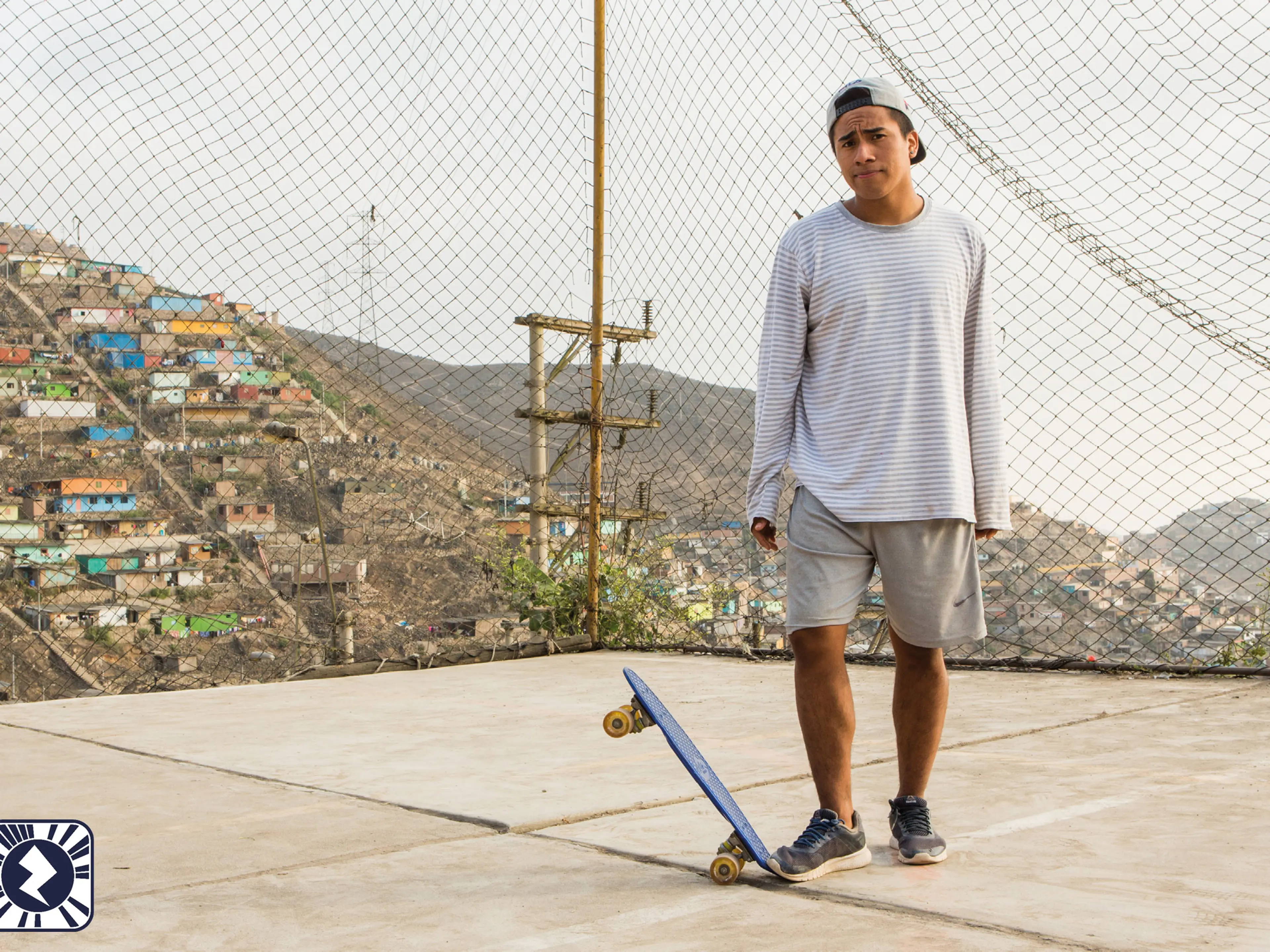
Meet Paolo, the change maker from Peru.
Paolo loves to skate and play football. His favourite football team is Peru, then Italy.
Paolo lives in an informal settlement, built high into the steep hillside of southern Lima. He is volunteering his time to do community service every Sunday, to help improve his neighbourhood. He is working on a new staircase.
Without these staircases, the paths leading to the houses are treacherous. The staircases can make a huge difference to help people move down the hills quickly, especially if there is a fire or a natural disaster, like an earthquake or landslide.
Paolo is helping to build the future of his community.
“For me, community service is really important. It’s something that you do to improve your community to help it to grow and develop”.
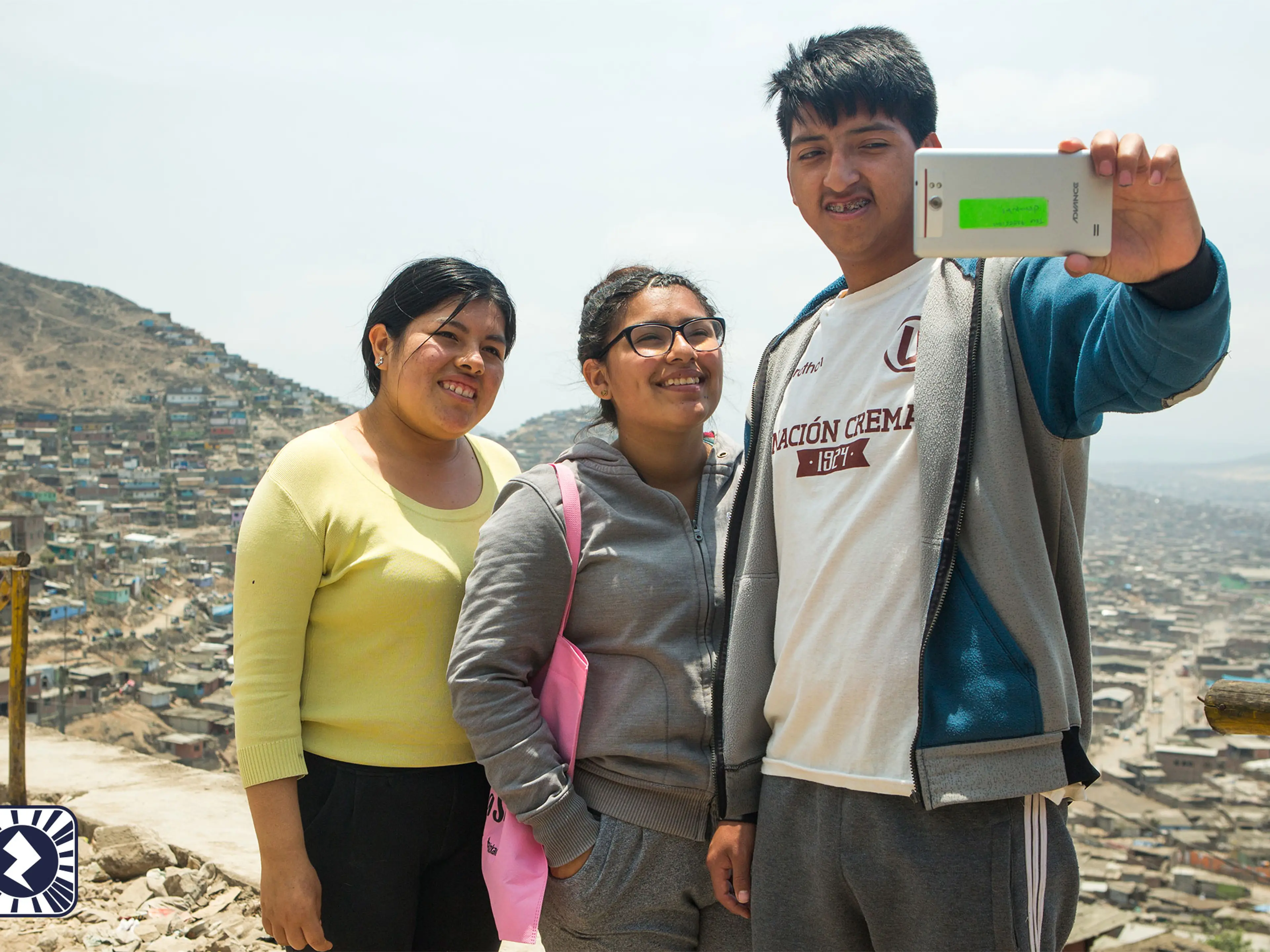
Meet Daniela, the change maker from Peru.
Daniela enjoys spending time with her friends, Matilda (left) and Gabriel (right). She likes taking photos and playing cards.
Daniela lives in an informal settlement, high in the steep hillside of southern Lima. She has never had running water at home.
Water is delivered to her neighbourhood, but sometimes the water trucks don’t come, which means there is no water. When the trucks do come, they deposit the water in tanks that are open to the dust, so water quality is poor. Residents in poorer neighbourhoods, like Daniela’s, can pay up to eleven times more for water than people with access to public networks.
Local experts have developed an observatory mobile app, to collect information from residents about their access to water. This information will be presented to Congress and used as evidence to lobby for better rights to water.
Daniela and her friends are helping in this fight for water, using mobile phones to gather this information from her community.
“You don’t really know when the water will arrive… Like everybody we feel uncomfortable when water doesn’t come. We need water for everything - to wash, to cook, everything”.
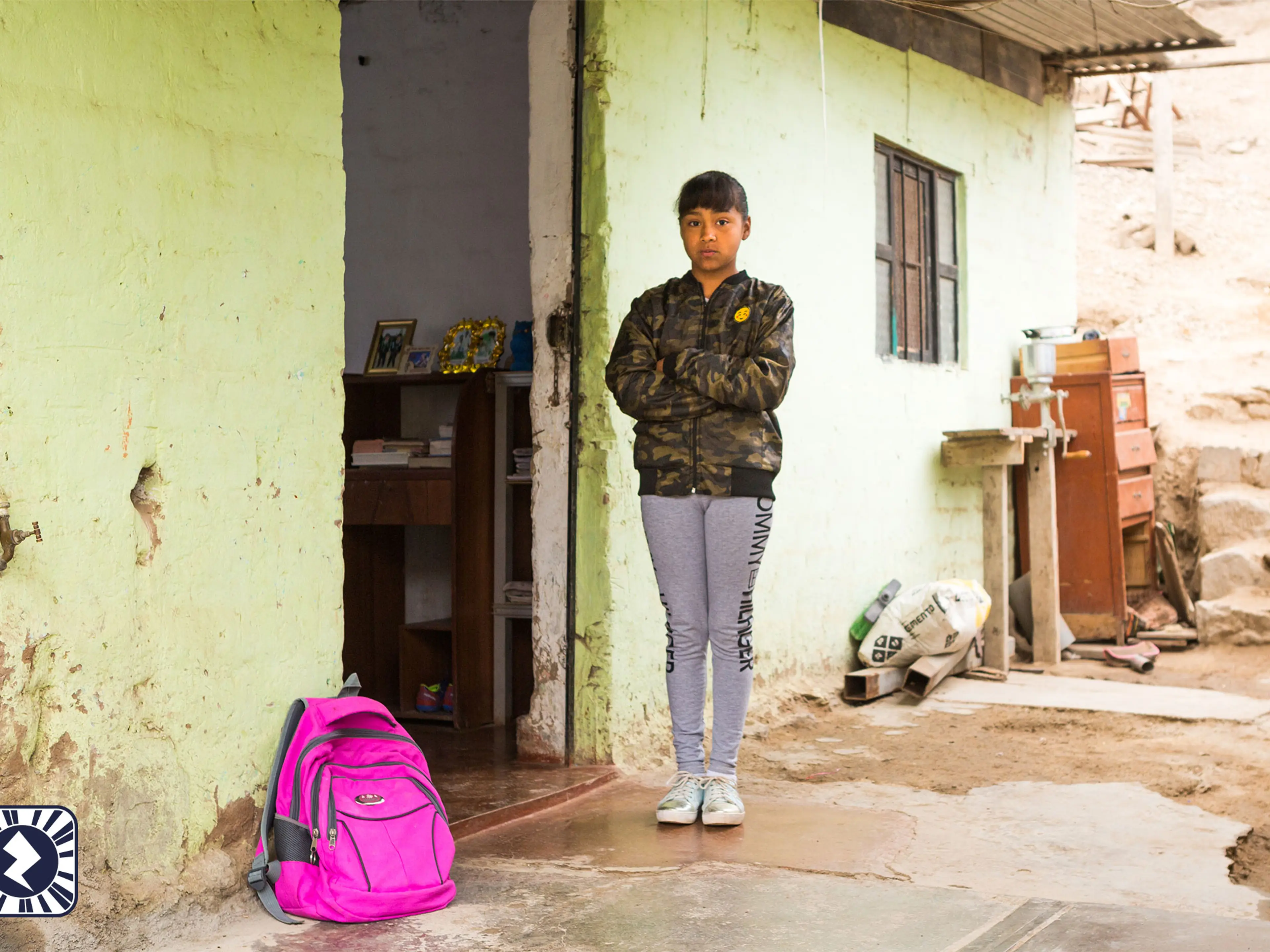
Meet Abigail, the change maker from Peru.
Abigail belongs to an eco-brigade. She enjoys finding ways to help the planet.
Abigail lives in a mountainous district towards the north of Lima, near a chain of mountains called the Lomas de la Primavera (Lomas). As Lima is a desert city, with very little rainfall, the Lomas is a crucial eco-system. Mist coming up from the Pacific coast allows vegetation and natural life to flourish here. It is known as Lima’s “green lung.” Pre-Incan artefacts have also been found in the Lomas.
Despite its ecological and archeological importance, the Lomas is under threat from land traffickers, who use fake documentation to sell plots of land to people desperate to find a place to live in the city. Mining companies are also threatening to invade the Lomas.
Abigail and the eco-brigade are helping to defend the Lomas. They have started working on a forestation project, planting small plants to help protect the land.
“It’s important to protect the Lomas because they give us our oxygen, they help our wellbeing and help our planet”.
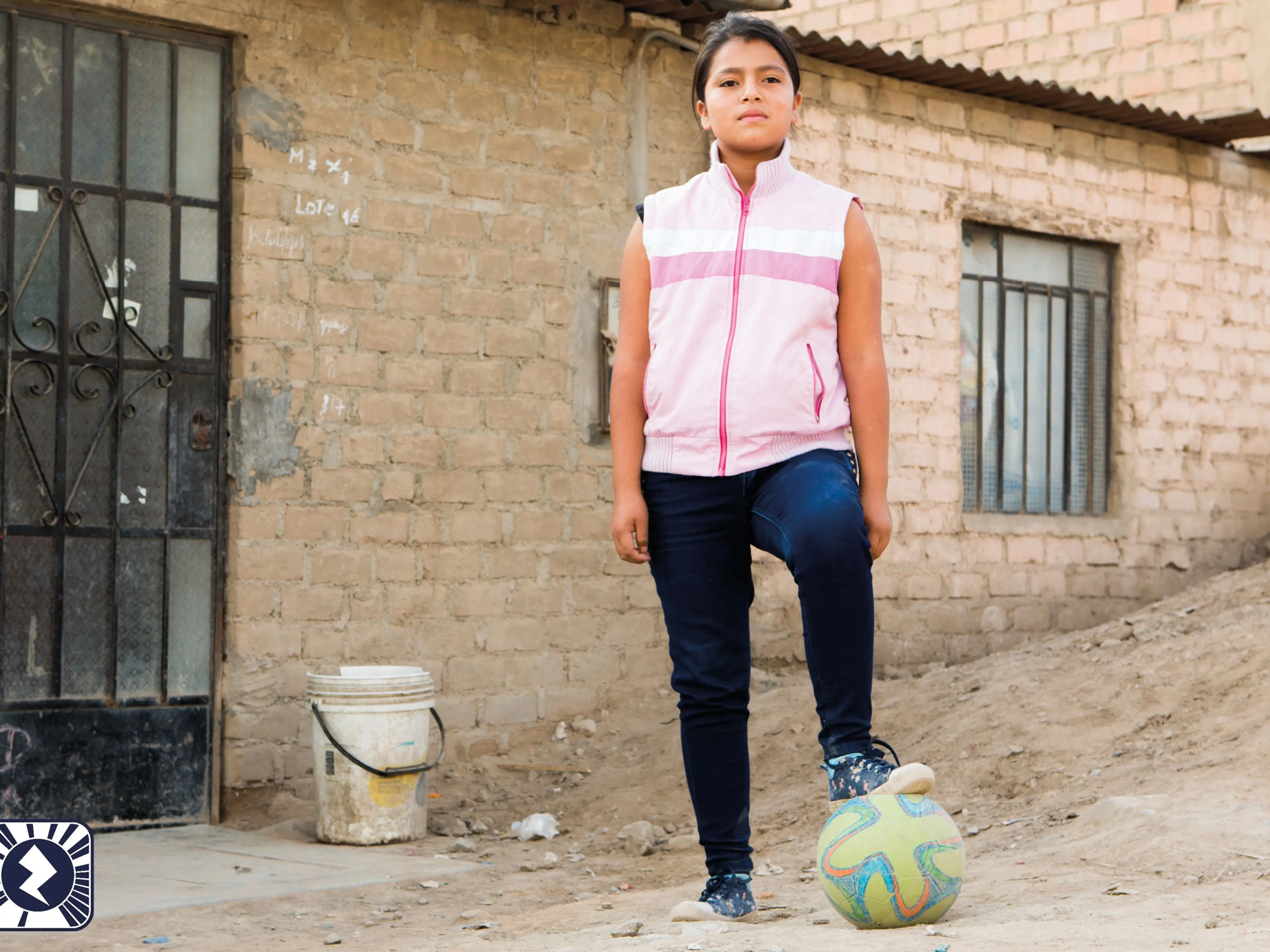
Meet Jasmin, the change maker from Peru.
Jasmin likes to play sport, especially football and volleyball. Her favourite footballer is Paolo Guerrero, who plays for Peru.
There aren’t many public parks or safe places to play where Jasmin lives. She lives in an area of northern Lima where there is lots of poverty. Parents often have to travel long distances to work, leaving children alone and at risk.
Jasmin belongs to a children’s organisation that helps children to understand their rights and voice their needs. They are helping to create safe spaces and improve the community.
Together they have claimed back a safe public space for children and young people, known as the Labyrinth. Jasmin helped to clear the Labyrinth of rubbish and create a lovely area with a maze, a playground and a space to play sport.
“Here we come and play. You can do anything here… I like most of all to come here and play football and volleyball. I don’t like the violence in my neighbourhood. At the Labyrinth I feel happy and I feel free”.
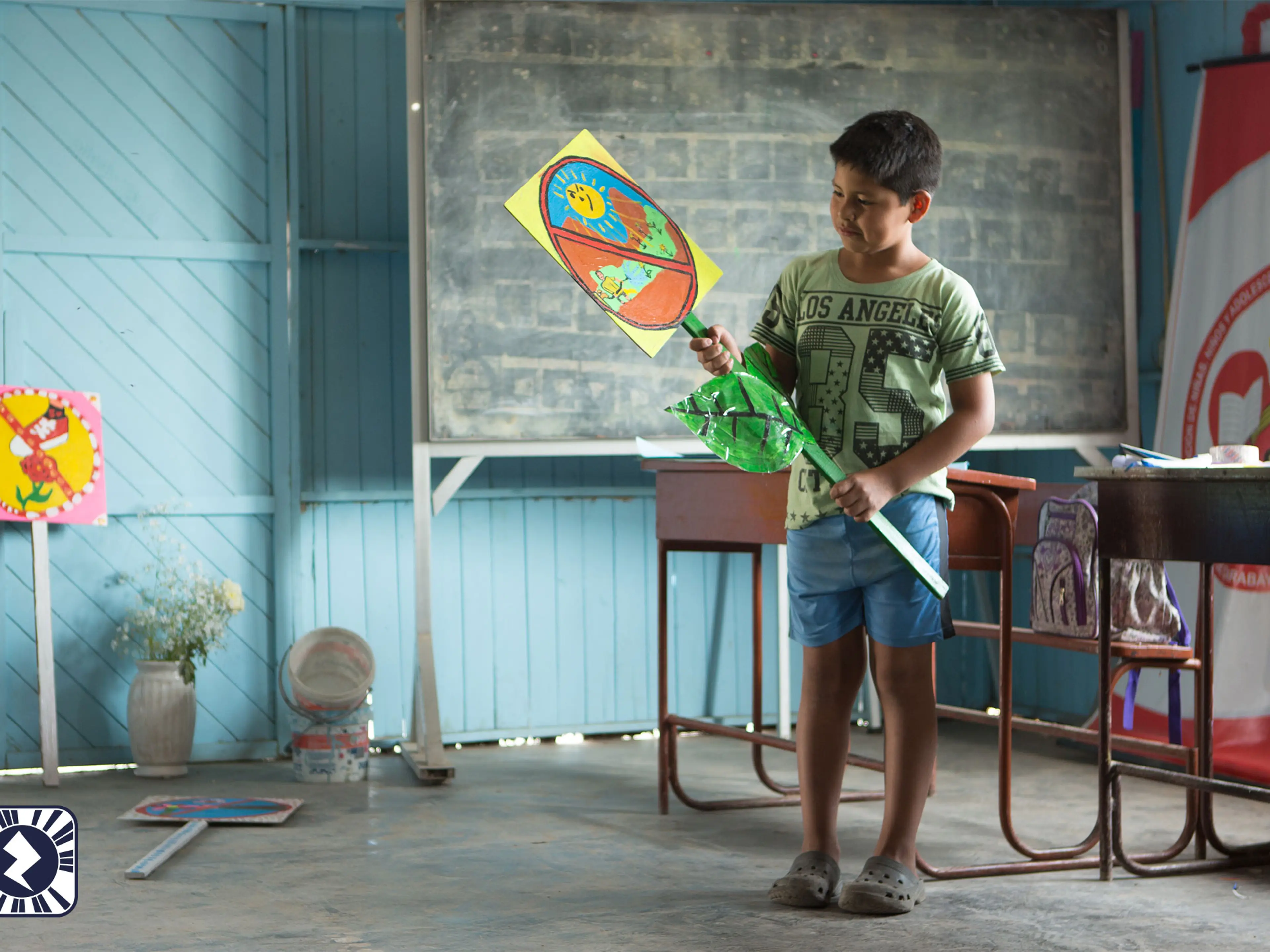
Meet Jean-Pierre. one of the change makers from Peru.
Jean-Pierre likes to read books and wants to be a teacher when he grows up. He goes to homework club to keep up with his studies.
Jean-Pierre lives in an area of northern Lima where there is lots of poverty. Parents often have to travel long distances to work, leaving children alone and at risk from violence and accidents. Many children also fall behind at school or drop out.
Jean-Pierre goes to a homework club, a safe space where he can do his homework and study, planting seeds for the future.
After the children have done their homework, they can play and do puzzles and games. They also have a garden to tend to.
The children have been learning how to grow plants. They have made signs to illustrate the rules of their garden. Jean-Pierre's sign is about not watering the plants when the sun is out and it’s too hot.
“When I’m in the homework club I feel good, I feel happy... I like to water the plants so that they grow. Without plants we can’t breathe”.
The young people photographed were very much part of this project. The photographs show the young people doing the things they enjoy and are passionate about. Some of photographs show the young people with objects that represent their interests.
CAFOD is funding local experts to work with and support these young people as they change the future of their communities.
Check out our volunteering opportunities for young people.
Teaching about climate change? Check out our resources for schools.